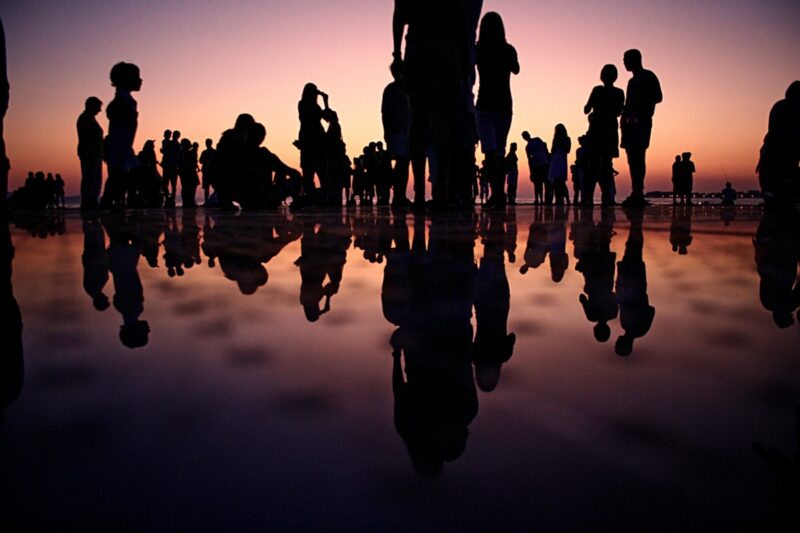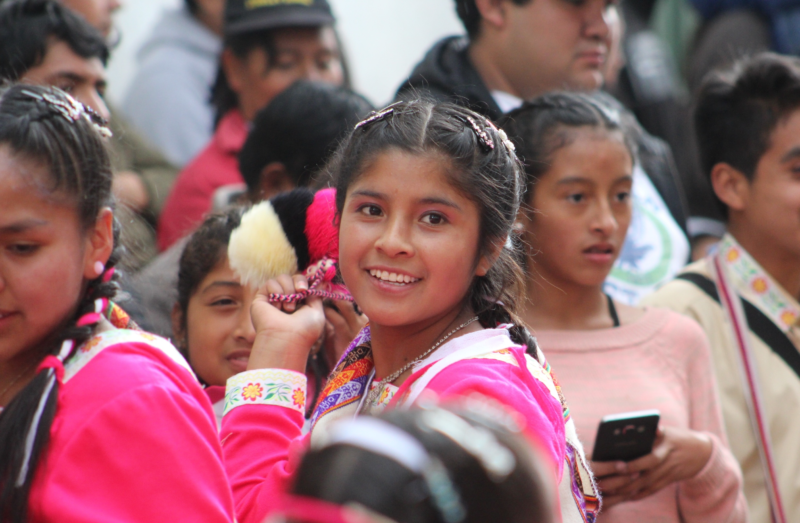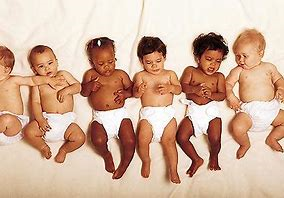Bank tellers are trained to spot counterfeit bills, not by studying examples of fake currency, but by becoming intimately familiar with real money. In the same way, to recognize racism as the counterfeit it is, we must study the real currency.
One worldview comports with reality and is the antidote to racism. Let’s consider that worldview first. Once we have examined what is real, we will look at two major counterfeits derived from atheism (that is, anti-theism) in its modern and postmodern manifestations.
There is only one human race. Every human is made imago Dei, in the image of God.
Racism is a result of mankind’s rebellion against the Creator. The effects of sin and the fall include a distorted understanding of what it means to be human.
When we define people primarily by their skin color we violate the unity of the one human race God created. Again, every single person has been made in the image of God, a truth derived from the biblical worldview of Judeo-Christian theism. In short, all lives matter! To disembowel racism requires beginning with a biblical worldview: blacks, whites, Asians and browns are all made imago Dei.
But what does this mean? It means something dynamic and profound. In its simplest form, when God made human beings, where did He look for the pattern? Not at dogs or monkeys; He looked at Himself! When God made you, no matter what your physical characteristics, He imagined you like Himself. The thing that marks you more than your age, skin color, sex, height, weight, etc. is that you are imago Dei at the core of your being.
Humans, unique in the creation
In the first chapter of Genesis, the veil is pulled back on eternity past to reveal a conversation between the persons of the Trinity:
Then God said, “Let us make man in our image, after our likeness. And let them have dominion over the fish of the sea and over the birds of the heavens and over the livestock and over all the earth and over every creeping thing that creeps on the earth.”
So God created man in his own image,
in the image of God he created him;
male and female he created them.
Two key words describe humankind as separate from the rest of creation.
- צֶלֶם (ṣě·lěm): image, likeness, i.e., that which is a pattern, model, or example of something
- דְּמוּת (demûṯ): likeness, i.e., that which has a similarity or comparison
At the beginning, God noted just one difference between the two humans, their binary sexuality as male and female. Otherwise, they share their most basic identity as humans. Later, the narrative will introduce other distinctives within the human race, including skin color. But the fundamental reality is that both male and female of all skin colors have the same intrinsic worth and moral value because they are imago Dei.
Think personally and deeply about this for a moment. Let it sink into the depth of your soul. You are the very image of God!
Three aspects to the image of God
The image of God in humans has three facets that refract like a three-sided prism: the essential view, the relational view, and the functional view. The refraction of light from  these three facets reveals the glory of imago Dei. We see these three aspects of the image of God in Genesis 1:26-28.
these three facets reveals the glory of imago Dei. We see these three aspects of the image of God in Genesis 1:26-28.
- The Essential View – Nature of Humanity: Genesis 1:26a, “Then God said, ‘Let us make man in our image, after our likeness.’”
- The Relational View – Community: Genesis 1:27, “So God created man in his own image, in the image of God he created him, male and female he created them.”
- The Functional View – the Cultural Commission: Genesis 1:26b, 28, “And let them have dominion over the fish of the sea and over the birds of the heavens and over the livestock and over all the earth and over every creeping thing that creeps on the earth … And God blessed them. And God said to them, ‘Be fruitful and multiply and fill the earth [the social commission] and subdue it, and have dominion [the developmental commission] over the fish of the sea and over the birds of the heavens and over every living thing that moves on the earth.”
What do each of these mean?
The Essential View – All human beings are like God.
In three critical areas we are like God and unlike the rest of the created order. All human beings are endowed with a mind, heart and will. The mind is the attribute of intellect and includes knowledge, understanding and wisdom. The heart is the attribute of morals and includes holiness, love, grace, goodness, mercy, righteousness and patience. The will, the attribute of purpose, means human beings are free moral agents who can make decisions that shape history. As found in human beings these may be described as internal capital.
 This internal capital combined with the human body allows each and every human to fulfill the cultural mandate as a steward of creation. The external stewardship of creation requires the internal self-government of the mind, heart and will. In short, humankind stands apart from the rest of creation in design and function. Human beings are imago Dei. This is what separates us from the rest of creation!
This internal capital combined with the human body allows each and every human to fulfill the cultural mandate as a steward of creation. The external stewardship of creation requires the internal self-government of the mind, heart and will. In short, humankind stands apart from the rest of creation in design and function. Human beings are imago Dei. This is what separates us from the rest of creation!
The Relational View – We are made for relationship
Before the creation, God existed as three distinct persons—Father, Son, and Holy Spirit—in one Deity. This Trinitarian model, unique among all philosophies and religions, is profound in that it establishes the unity and diversity of the human family. It allows us to celebrate our distinctives. God said, “Let us make man in our image,” not, “Let me make man in my image.”
Community, communication and communion existed before the creation. To be made in the image of God is to be made for relationship that includes community, communion and communication. “It is not good for man to be alone!”
In His eternal existence God is unity without uniformity and diversity without superiority. The term “Adam” captures the unity of humankind; all humans carry the DNA of the first couple. The diversity of mankind is found in such things as our male and female sexuality, our physical characteristics (such as facial features, height, skin color), our tribe/ethnicity, our individual personalities, and many other dimensions of human life. It takes this wonderful diversity to begin to reflect all that it means to be the Imago Dei. This diversity is to be enjoyed and celebrated. It is not meant to divide.
The Functional View – We are here for a purpose
Michael Novak, the Roman Catholic economist, makes a remarkable observation: “Creation is full of secrets waiting to be discovered, riddles which human intelligence is expected to unlock. The world did not spring from the hand of God as wealthy as humans might make it.” Novak understood that when God finished His work of creation, it was perfect, but not complete. It was filled with purpose and potential. And God’s intention was that the human race would be His vice regents.
We are to take what He made and do something with it; we are to develop the creation which God made full of abundance. This implies that wealth is not limited by the volume of natural resources in the ground (zero sum economics as atheists assume) but wealth can be conserved, invested, and grown (positive sum economics). Novak writes:
We might call this a theology of economic man. This stands in stark contrast to evolutionism which states that human beings are cosmic accidents; we are here by chance, not by purpose. We are here as consumers, not creators.
No, the scriptures and our design indicate we are here for a purpose. We are economic creatures. We are to steward creation for human flourishing. Wealth is not, as the Marxists say, limited and to be divided and distributed. No, wealth is to be created by human beings of all races.
Imago Dei: the most significant aspect of the human
In summary, we are made like God (the essential view), to form families (the relational view) to govern creation (the functional view). The nature of every human being, no matter what race, is that we are imago Dei. There is no place for racism in the Bible or in the world.
This profound biblical principle led the Founding Fathers of the United States to proclaim, in the Declaration of Independence, a political document,
We hold these truths to be self-evident, that all men are created equal, that they are endowed by their Creator with certain unalienable Rights, that among these are Life, Liberty and the pursuit of Happiness.
This was the first political document in history to enshrine the biblical principal that all men are created equal. This statement was the high-water mark in human history for political documents recognizing the intrinsic equality of all human beings with certain absolute rights. These are God-given rights, they are not granted by the state and cannot be removed by the state or any institution or individual.
Has the United States or any other nation reached this standard in practice? No! In fact some of the founders who professed this standard owned slaves themselves. While no nation has perfectly met this benchmark (some don’t even try), it became the gold standard for political aspirations.
Where did this standard come from? The Judeo-Christian scriptures.
Our common humanity
 The Bible does not divide people into aggrieved groups based on skin color. It does not build one’s identity on race or sexual orientation. Rather, the Bible sees our primary identity in our humanity; each of us is imago Dei. This reality—a common humanity—precedes even the large gap the Bible places between God’s covenant people and those outside that company. We are all first and foremost children of God. And yet, at the same time, the Bible recognizes the wonder of the unique individuality of each human being, like the Trinitarian Community.
The Bible does not divide people into aggrieved groups based on skin color. It does not build one’s identity on race or sexual orientation. Rather, the Bible sees our primary identity in our humanity; each of us is imago Dei. This reality—a common humanity—precedes even the large gap the Bible places between God’s covenant people and those outside that company. We are all first and foremost children of God. And yet, at the same time, the Bible recognizes the wonder of the unique individuality of each human being, like the Trinitarian Community.
- UNITY WITHOUT UNIFORMITY
- DIVERSITY WITHOUT SUPERIORITY
Our primary identity is our humanity. In this we are all equal and deserve respect and dignity. Our diversity is not to divide us but to be celebrated in all its wonder. This understanding is derived specifically from the nature of the Creator.
As Dr. Martin Luther King Jr. so eloquently stated, “I have a dream that my four little children will one day live in a nation where they will not be judged by the color of their skin but by the content of their character.”
But the Judeo-Christian worldview has been rejected for a post theist “God is Dead” worldview. Ideas have consequences. As we move from theism to atheism, everything changes. One human race is distorted to the ideology of race-ism. As the Harvard Crimson student newspaper put it unapologetically, “Everything is about race.” The issue is skin pigmentation, not our nature as imago Dei nor the content of our character. It’s a move from a dynamic view of human nature and the unity of the human race to a flat-earth view that reduces man to the physical or ethereal and leaves us divided racially.
- Darrow Miller






